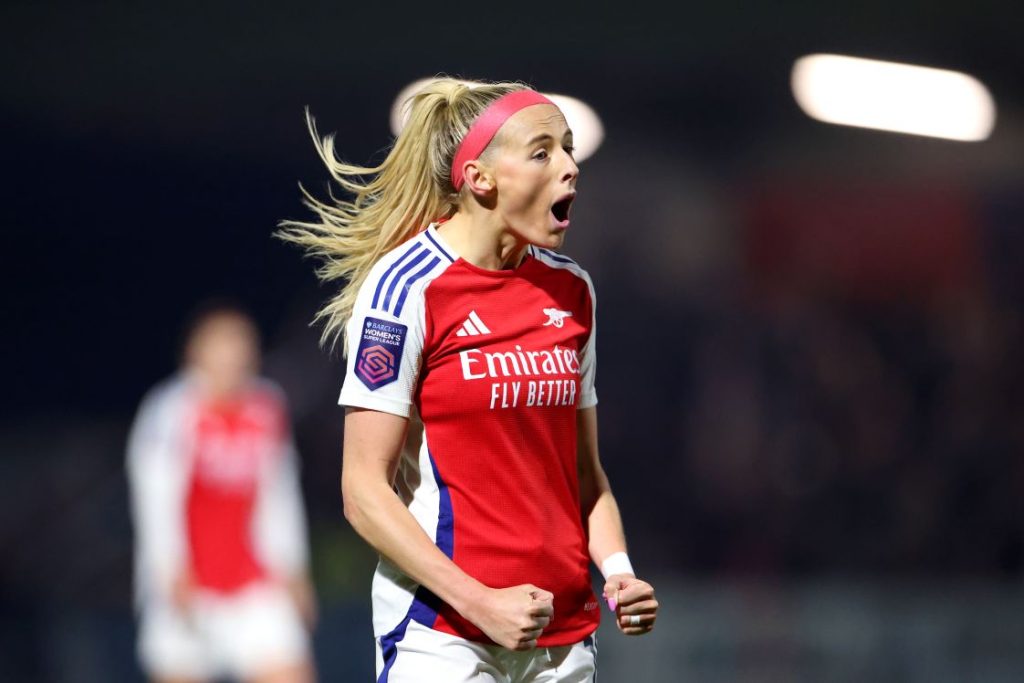
Arsenal’s Chloe Kelly is just the latest in a string of players – from the very top of the game and throughout the pyramid – who have spoken publicly about the way coaches and clubs have historically dealt with diet, weight and body image in women’s football.
“I’ve definitely been in teams where there’s been a fat club and it’s sad.
“Seeing your friends go from one extreme to the other – I’ve seen my friends and my team-mates lose so much weight and be so unhappy and obsessed.
“And I think that really does affect your mental health.”
What are the ‘fat clubs’ that Chloe Kelly mentioned?
And although Chloe Kelly was talking about incidents that had happened in her younger years, there are certainly still problems in the game when it comes to talking about these topics.
‘Fat clubs’ – as Chloe Kelly said – have not been uncommon occurrences – with players whose weight or body fat percentage is deemed unacceptable given extra training to get them within the parameters judged appropriate, and with the club’s members and the weights displayed publicly, in a form of shaming.
Former Lioness Claire Rafferty has spoken many times previously about her own eating disorder, saying in 2022: “I was in a really controlled environment from a young age. Even in my teens we were weighed every day at the England development camps and sent to ‘fat club’. You got on the scale daily and someone would just say you needed to go and do more sessions or not and that became a marker that you were constantly reminded of.
“You had no choice to opt in or out, you just did what you were told.”
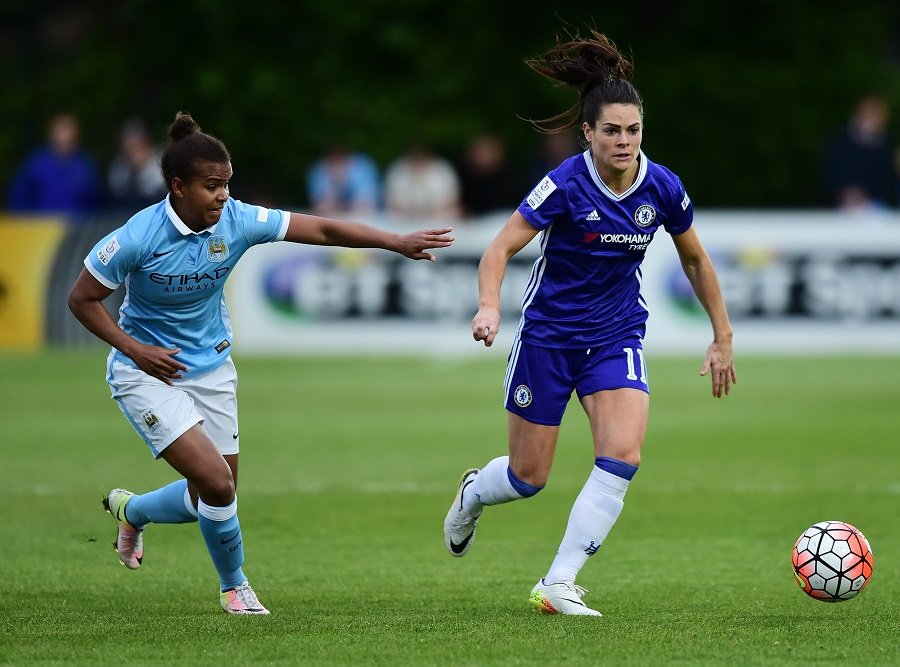
While it’s certainly a possibility that a player needs to do extra training for a variety of reasons, focusing on weight and using the label of ‘fat club’ is a real danger.
“Body shaming and insensitive language can be especially harmful for people affected by eating disorders, or vulnerable to them,” Tom Quinn, director of external affairs at eating disorder charity BEAT, told SheKicks.net.
“Whilst it wouldn’t be the sole cause of someone becoming unwell, it could lead to them carrying out dangerous eating disorder behaviours such as restricting food, bingeing or purging.”
And women competing in elite football may have a complicated relationship with food, says sports dietitian Alicia Edge.
“When we’re looking at the food side – and this is often where the struggle becomes quite apparent in athletes – it’s important to recognise that many individuals have spent their whole lives being athletes or active people. Food has only ever been attached to ‘I eat to play’ or ‘I eat to perform.’ It’s only ever been seen as fuel for movement,” says Alicia.
“But in reality, so much of the energy we need each day is actually for our daily activities. Even if we were to sleep all day, we’d still need a substantial amount of energy – a female would still require around 1,200-1,600 calories a day just to exist.”
She goes on: “If someone in the athlete space has only ever viewed food as something they need for their sport, then in any moment of adversity – like a serious injury or a low training day – they can suddenly feel as though they don’t ‘deserve’ that food, because they haven’t ‘earned’ it through exercise or training.
“There is a science to nutrition, but eating is a behaviour. As a result, it is something that is influenced by the culture someone’s in – the environment they have at home, within their club, and also by how they feel about and perceive food, their body, and themselves.”
How to measure body composition in women’s football
Even those not involved in elite sport will likely be familiar with the body mass index, or BMI, which gives a very rough indication of how much of an individual’s body might be composed of fat; sport has also utilised tools such as skin fold tests to assess fat levels, and Edge suggests that this reliance on what can be seen is not necessarily helpful.
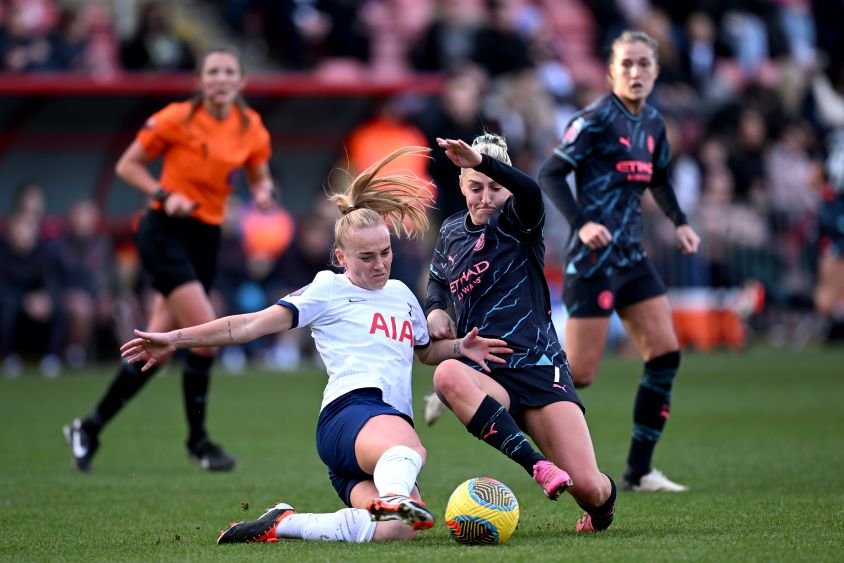
“Body composition is the thing that’s tangible – the thing we can measure and physically see. I think that’s often what’s been interpreted as performance, but more deeply, if we really question the bias and beliefs that exist, it’s often what we equate with professionalism or performance potential.”
“Just because you’ve got a higher body fat count or number does not mean you’re not a skilled footballer or very skilled athlete,” agrees Marianne Hayward, a dietitian and sports nutritionist, “and there’s very, very little in terms of studies out there that connect body composition with performance.”
She explains: “Fat is a very important commodity. It has water or hormonal balance. It’s extremely important, and for a woman, it’s more important. It not only provides us with nutrients we require, it also provides a bit of ballast for some of the athletes who require it, [for example, in football, those might be] defenders.”
And Edge adds: “We cannot predict when performing weights or body composition measurements may create stress or anxiety in a player, if these measures are done within an environment, it is important to do so with confidentiality of data and player consent. The practice of making direct comparisons between players or publicly displaying body metrics can be extremely harmful.”
What football coaches can do to help players with eating disorders
Edge suggests it might be worthwhile for those working in women’s football to assume that half of the players they are working with could have disordered eating behaviours to some degree, or issues with body image.
Indeed, according to a 2024 FIFPRO-led study tracking athlete health, one in five female players reported disordered eating over a 12-month period.
These are relatively recent figures, and based on one study. In a time when women’s football is professionalising and growing very quickly, the data and the research to underpin its progress are simply not available yet. Mindsets may be modernising, but it is a slow process.
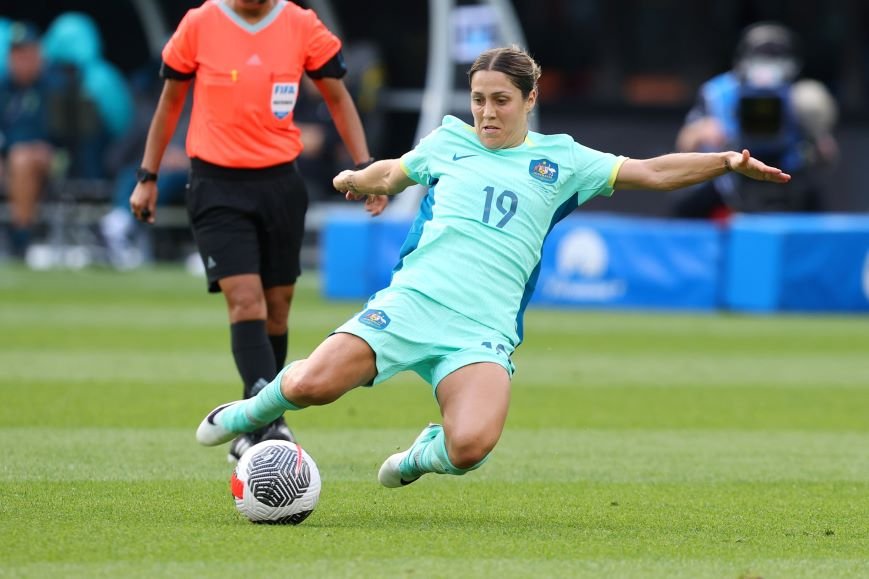
Multi-disciplinary teams have plenty to think about – not just about addressing acute problems when they observe them, but ensuring that the necessary preventative work is done to stop problems from getting to a critical point. That means examining the culture within a football club, the language used around food and body, the practices used to measure fitness and body composition.
“Coaches and training teams need to have a good knowledge of the warning signs of eating disorders and be on the lookout for any indication that players might be struggling,” says BEAT’s Tom Quinn.
Alicia Edge agrees.
“While playing at a high level does require a high level of fitness, it’s entirely possible to support players to perform at their best without resorting to shame or stigmatising language such as ‘fat clubs’ to get results.
“In the playing environment, it is common for coaching staff to request players be fitter or leaner. In these situations, it is so important that we get curious on where or why this request has stemmed from – what is the performance outcome they are needing or hoping for from a change in weight or body composition?
“We need to consider carefully any comments we make about someone’s body, even those that may be well intentioned. There is no ‘look’ to disordered eating or eating disorder – only less than 6% of those with a diagnosed eating disorder are underweight – and we can never know what someone is going through or how these words or actions may impact them for many years to come.”
Could Chloe Kelly have helped her team-mates?
In her comments to the media, Chloe Kelly also wondered whether she could have done more to help her team-mates who were suffering with body image and disordered eating – but didn’t know what she might have been able to do.
Of course individuals who are experiencing these problems might benefit from professional psychological and medical support, but ultimately, as Alicia Edge says, helping one person does not solve the underlying issues – which is that telling young women to be slim and conventionally attractive, and comparing them to each other, is cultural, and not unique to football.
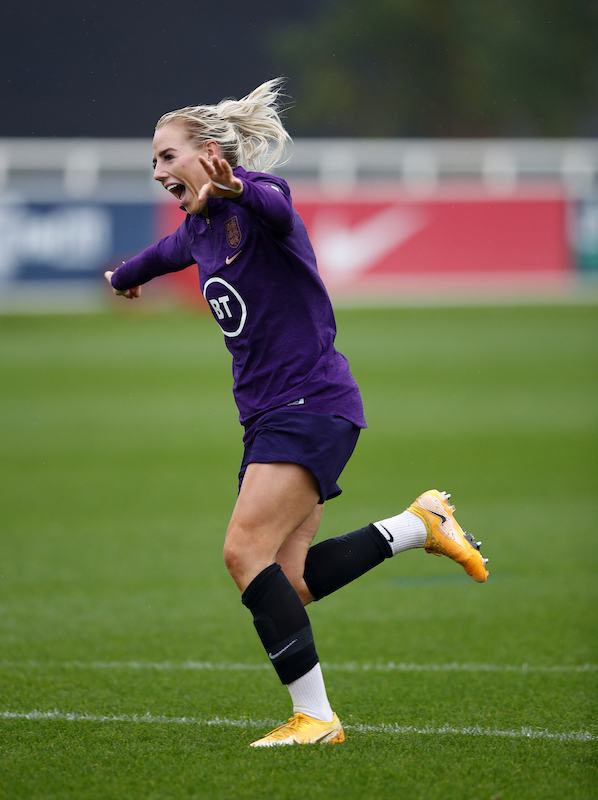
Photo: Lynne Cameron for The FA
Dr Emma Cowley, researcher at the Technological University of the Shannon, says that her work shows that women feel heightened self-consciousness when exercising, regardless of whether they are elite athletes or not: “Women across age groups reported being concerned about everything from how their skin and hair look, to sweat patches, to how their clothes fit – there’s a general sense of feeling like the ‘can’t win’ or they are never ‘enough’.”
She adds: “The ideal seems to have shifted slightly from the 90s heroin-chic to a lean, athletic look – but never becoming ‘too’ muscular for fear they aren’t feminine enough! These contradictory and unrealistic messages are reinforced by mass media, leaving many women feeling inadequate in sport and fitness spaces.”
This idea about needing to look “feminine” has also extended to elite women’s sport, with top players across disciplines competing for lucrative commercial deals.
But Dr Cowley is hopeful that female athletes are becoming more confident and comfortable with themselves – regardless of their body type.
“In general we can see how much importance big sponsors place on athletes’ aesthetics,” says Dr Cowley. “At Paris 2024, the sprinters – both women and men – were decked out with jewellery and accessories, and for women in particular who are often underpaid and under-resourced, these sponsorships can be crucial. While the sexualisation of women athletes to sell products still persists, people like [rugby superstar] Ilona Maher are showing companies you don’t need to put a woman in a bikini to sell shoes – her personality is doing that.
“Hopefully this marks a shift away from the over-sexualisation and towards greater visibility for women of all shapes, sizes, and colours.”




